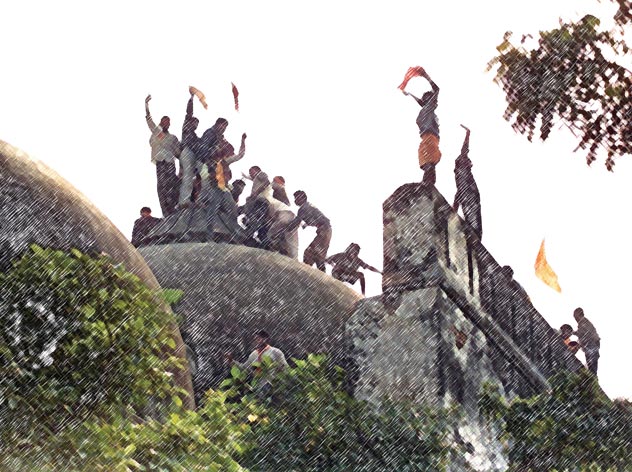|
|
|
ADVERTISEMENTS
|
|
PREMIUM
- HAPPY HOLIDAYS!
- Siliconeer Mobile App - Download Now
- Siliconeer - Multimedia Magazine - email-Subscription
- Avex Funding: Home Loans
- Comcast Xfinity Triple Play Voice - Internet - TV
- AKSHAY PATRA - Bay Area Event - Sat. Dec 6
- Calcoast Mortgage - Home Loans
- New Homes in Silicon Valley: City Ventures - Loden Place - Morgan Hill
- Bombay to Goa Restaurant, Sunnyvale
- Buying, Sellling Real Estate in Fremont, SF Bay Area, CA - Happy Living 4U - Realtor Ashok K. Gupta & Vijay Shah
- Sunnyvale Hindu Temple: December Events
- ARYA Global Cuisine, Cupertino - New Year's Eve Party - Belly Dancing and more
- Bhindi Jewellers - ROLEX
- Dadi Pariwar USA Foundation - Chappan Bhog - Sunnyvale Temple - Nov 16, 2014 - 1 PM
- India Chaat Cuisine, Sunnyvale
- Matrix Insurance Agency: Obamacare - New Healthcare Insurance Policies, Visitors Insurance and more
- New India Bazar: Groceries: Special Sale
- The Chugh Firm - Attorneys and CPAs
- California Temple Schedules
- Christ Church of India - Mela - Bharath to the Bay
- Taste of India - Fremont
- MILAN Indian Cuisine & Milan Sweet Center, Milpitas
- Shiva's Restaurant, Mountain View
- Indian Holiday Options: Vacation in India
- Sakoon Restaurant, Mountain View
- Bombay Garden Restaurants, SF Bay Area
- Law Offices of Mahesh Bajoria - Labor Law
- Sri Venkatesh Bhavan - Pleasanton - South Indian Food
- Alam Accountancy Corporation - Business & Tax Services
- Chaat Paradise, Mountain View & Fremont
- Chaat House, Fremont & Sunnyvale
- Balaji Temple - December Events
- God's Love
- Kids Castle, Newark Fremont: NEW COUPONS
- Pani Puri Company, Santa Clara
- Pandit Parashar (Astrologer)
- Acharya Krishna Kumar Pandey
- Astrologer Mahendra Swamy
- Raj Palace, San Jose: Six Dollars - 10 Samosas
CLASSIFIEDS
MULTIMEDIA VIDEO
|
|
|
|
|
SUBCONTINENT:
Tryst with a Communal Past: The Babri Masjid Report
The government report on the December 1992 demolition of the Babri Masjid is too little too late, but the Bharatiya Janata Party better get its act together if it wants to revive its fortunes, writes Siddharth Srivastava.

(Above): As it did in the U.S., President Barack Obama’s election drew an outpouring of public jubilation in India. However, Obama’s South Asia policy has left India’s policy makers underwhelmed.
The demolition of the Babri Masjid by Hindu fanatics on December 6, 1992 at Ayodhya in Uttar Pradesh is a blot on India’s contemporary history.
It exposed the underbelly of India’s ugly communal, caste and minority politics that peaked in the ’90s though the potency of the vicious communal agenda has diminished considerably over the last 4-5 years.
This month, 17 years after being appointed on December 16, 1992 to probe the conspiracy leading to the destruction of the mosque, M.S. Liberhan, then a judge of Punjab and Haryana High Court, submitted his findings to Prime Minister Manmohan Singh.
As per the statutes the government will need to declare the contents of the report within the next six months.
Though India has witnessed much worse, such as the anti-Sikh riots in 1984 and the communal riots in Gujarat in 2002 in which hundreds were massacred, the destruction of the Babri Masjid was a symbolic insult of the minority Muslim community in India and the failure of the state machinery to protect them.
It was a brutal misuse of people’s faith and promotion of obscurantism for immediate political gains.
The serial Mumbai blasts of 1993 orchestrated by underworld dons such as Dawood Ibrahim was a reaction to the mosque being razed to the ground.
The radical communal politics that followed witnessed the emergence of the Bharatiya Janata Party as a powerful national party.
The BJP went on to win the elections and ruled under the moderate face of former Prime Minister Atal Behari Vajpayee, necessary to win support of allies in a coalition government.
The other BJP stalwart L.K. Advani, meanwhile, championed an aggressive Hindutva ideology rooted in majority Hindu rule.
Originally Liberhan was supposed to prepare the report in a few weeks, which finally took 399 sittings, 100 witnesses, 48 extensions and enormous public money.
Liberhan has defended himself, blaming instead the stalling and obstructionist maneuvers to derail the probe.
In the 1990s, when Justice Liberhan had summoned top Sangh Parivar pro-Hindutva outfits such as the Vishwa Hindu Parishad and Rashtriya Swayamsevak Sangh, he faced a High Court stay order.
Over four years, various federal governments failed to get the stay vacated.
Another example is former Uttar Pradesh Chief Minister Kalyan Singh, who has since switched political loyalties, who has been criticized for avoiding the inquiry panel.
When finally quizzed, Kalyan told the commission that the demolition of the Babri Masjid was an “act of God,” for which he had no regrets.
“Historians will write that the devotees of Lord Ram, devotees of the nation had demolished the symbol of slavery and disgrace, though this demolition was not expected. It was purely sudden and totally unplanned.”
The Babri Mosque was built on the remains of a temple of Hindu god Ram in Ayodhya by India’s erstwhile Muslim rulers a few centuries back.
Though some historians say the existence of the temple is hearsay, most, including the Archaeological Survey of India, confirm its existence predating the demolished mosque by over a thousand years.
Liberhan examined the role of Advani in fueling a volatile situation that ultimately lead to the demolition of the mosque, which some Hindus believe to be originally the birth place of Lord Ram.
Advani has been accused of leading a Rath Yatra (chariot tour) to rally support, despite court injunctions against such a move.
He is also blamed for failing to control the crowds he mobilized.
Other front-ranking Hindutva leaders (of the Sangh Parivar) who stand indicted include Uma Bharti, Murli Manohar Joshi, Ashok Singhal, Vinay Katiyar.
The Congress under then Prime Minister P.V. Narasimha Rao has been criticized for “inaction” and allegedly “sleeping” through the demolition, despite intelligence reports of attempts to destroy the mosque.
Ironically, the Liberhan report has been submitted when sectarian politics in India is on the wane, as highlighted by the successive defeat of the BJP in federal elections in 2004 and again this year.
The BJP today is a shadow of its former self, having failed to sense the pulse of a nation wanting change, stability, growth, better income and improved living conditions.
The near exit of Vajpayee and Advani from the political scene has resulted in severe infighting amongst the younger leadership comprising Narendra Modi, Sushma Swaraj, Rajnath Singh and Arun Jaitley.
The party’s politics of religious polarization, a reaction to what critics view as caste and pseudo-secularist approach of other political outfits, had paid rich dividends in the past, but it has boomeranged more recently.
The party got it completely wrong by backing BJP leader Varun Gandhi’s vituperative hate speech against Muslims in the run up to the general elections.
The BJP’s attempts to turn a religious issue into a political one have failed.
A wiser electorate has voted for the Congress Party again this year in the hope of a national policy focus on development and stable government under the leadership of Manmohan Singh and Sonia Gandhi.
Regional parties with limited and parochial notions about national issues have been sidelined. Regional leaders such as Mayawati of U.P., who depend on caste politics have taken a severe beating at the hustings.
At the same time, leaders and parties in states such as Bihar, Delhi, Orissa who tried to provide corruption-free pro-growth governance have emerged victorious.
Some observers have said that the Liberhan report is too little too late as the BJP, the main target of the inquiry, is not in power and the octogenarian Advani has been ruled out of the political stakes with his ambition to be prime minister almost certain to remain unfulfilled.
Some Hindutva leaders are already dead and so is Narasimha Rao.
It would have been a completely different matter had the BJP been leading the government when the Liberhan findings were submitted. The findings could have had a much more incendiary impact.
However, the report could still be a silver lining for the BJP if it could play its cards right.
The emerging leadership of the BJP could distance themselves from the findings of the Liberhan report if they are willing to acknowledge them as mistakes of the past that need to be rectified.
The fact remains that the development record of the BJP at both the federal and state level is not bad.
However, its skewed political approach and constant search for short cuts to power has shrouded its good performance and engendered suspicion in the minds of the electorate.
The emerging BJP will have to check the sway of radical outfits such as VHP and RSS.
If the BJP, as the main opposition, plays its card right and shuns communal politics, there is every likelihood that the country will head towards a two-party system and away from the squabbles that invariably accompany coalitions.
Though the Congress has won the elections this year, it cannot afford to be complacent.
The expectations of performance are high, an agenda that Manmohan is trying to pursue aggressively, though critics still consider it pseudo-secularist due to its pro-minority political slant.
The BJP has to get its act together in the interests of a healthy democracy and to keep the Congress in check.
So far, the signs are not good.
|
 Siddharth Srivastava is India correspondent for Siliconeer. He lives in New Delhi. Siddharth Srivastava is India correspondent for Siliconeer. He lives in New Delhi.
|
|
|
|
|
|